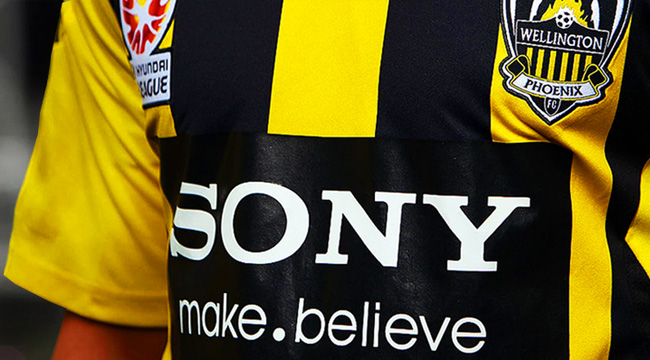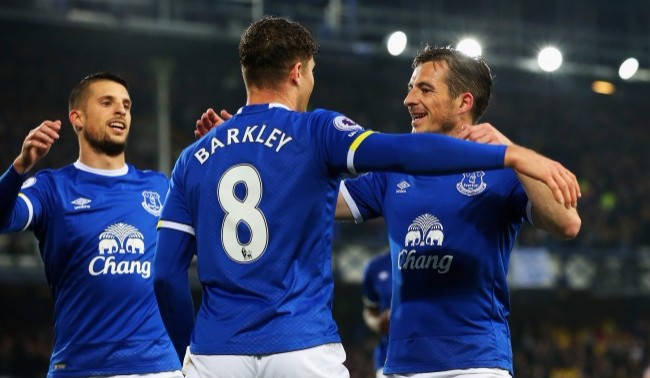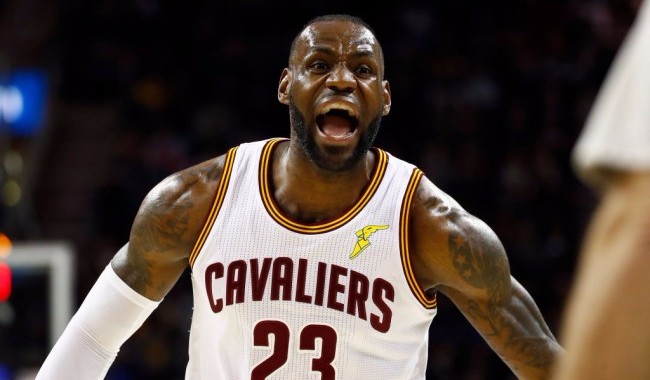
I have no great loyalty to Chang, a not particularly well-reviewed lager produced by Bangkok-based Thai Beverages. It is a thoroughly mediocre beer, and difficult to find in the United States, and I’ll be quite content if I never taste it again. You might not guess this by the dozen or so shirts in my closet with a giant Chang logo on the chest.
If, as Jerry Seinfeld once said, our sports fandom often boils down to little more than “rooting for laundry,” there may be nothing dumber than rooting for laundry with a corporate logo on the front. In that, international soccer fans have had a long head start on fans of the traditional major American sports: For decades, teams in Europe and elsewhere have sold uniform space to advertisers ranging from local plumbers to multinational conglomerates. Now, those Americans who have yet to embrace the world’s preferred version of football — I’m told that some holdouts remain — are about to find out how that feels.
Last April, the NBA announced it had approved jersey sponsorships starting with the 2017-18 season. So far, six teams have inked deals, most recently the Cleveland Cavaliers with Akron-based Goodyear. The outcry from traditionalists so far seems fairly minimal, probably because traditionalists hold less sway in the NBA (a league that has forced some of its players to wear T-shirt jerseys in recent years) than they do in other sports, and because the small corporate logos won’t do much to diminish or compete with the actual team or city name on the chest.
Not yet, anyway.
Again, if you’re a soccer fan, you long ago got used to the idea of a giant corporate logo dominating the front of your favorite team’s shirt. I’m a fan of Everton, the English team that, since 2004, has worn the iconic symbol of the aforementioned mediocre Thai beer: “Chang” written in a sort of half-cursive script, below the image of two elephants facing each other on opposite sides of a fountain. I don’t have the slightest idea what the image symbolizes, but at least it’s not a Doritos logo.

And thank god for that, as it’s by far the biggest thing on the shirt. By comparison, the club crest — the enduring, almost holy symbol of the team and all that its fans hold dear — is relegated to the upper left corner, about one-fourth the size of that beer advertisement. Pro sports are capitalism above all else, and your favorite soccer team never lets you forget it. But here’s the thing. Everton’s about to lose the Chang logo, and I’m having some feelings about it.
The good news is that the club just signed a new (and more lucrative) sponsorship deal, which means more money to (theoretically) sign better players. The bad news is that this new sponsor, a Kenya-based sports betting company called SportPesa, will now have their logo on Everton’s shirts.
I realize this is admittedly a very dumb thing to care about. For more than a decade, I’ve been happily providing free if ineffectual advertising for a Thai beer that I don’t particularly like and can’t find for sale within 100 miles of my home. Now, for (at least) the next five years, based on Everton’s agreement with SportPesa, I’ll be doing the same for an African gambling website I can assure you I will never use. Why should it matter?
Seinfeld knows why, and so do the rest of us, even if we’re not all that conscious of it.
Everton’s deal with Chang lasted 13 years, longer than most sponsorship deals at the top level of the game. More important, it proved more enduring that many other symbols associated with the club. Over those same 13 years, the club twice redesigned its crest (the first redesign, universally reviled by supporters, lasted only a season). They wore the logos of three different kit-makers (Umbro, Nike, and Le Coq Sportif), and, like pretty much every team, changed its jerseys every season. Those changes were usually just minor tweaks to the classic royal-blue home shirt, but the away and third kits got a complete makeover virtually ever year.
The only thing that didn’t change, from 2004 until last month? Those two elephants, staring at each other stoically through the blossoming waters of that fountain.
So, yes, of course it’s dumb that I’m going to miss the beer logo on the front of my favorite team’s jersey. But I’m not sure it’s much more dumb than being bothered by any other design tweak, logo update, or color change of the sort that American sports fans are used to caring about with their favorite baseball, football or hockey teams. And I’ve got a feeling NBA fans might soon be surprised to find they care about the corporate logos on their favorite team’s jerseys, too.

In that, Cavs fans are lucky: I don’t suppose anyone is actively anti-tire, and given Goodyear’s long affiliation with nearby Akron — the one-time “Rubber Capital of the World” and home to one of the Cavs’ better players, apparently — makes it a perfect fit. StubHub and the Sixers? Harmless enough, I imagine, although if The Process doesn’t work out, jokes about Philly’s sponsorship being heavily discounted will surely fly. The Celtics and GE seem like a nice old-school fit. The Nets inked a software company I’ve never heard of, which seems appropriate. The Jazz will be promoting a cancer charity. The rest of the league is to be determined.
For now, I’m guessing most fans will be content that those logos are as small as they are. But they’ll get bigger, because capitalism demands it, and fans will adapt. Sooner than later, and not just in the NBA, American fans will have to get used to corporate logos dominating their favorite teams’ uniforms. Some will hate it, most will simply accept it. A few of us might even grow fond of those symbols, if they don’t look half bad and they seem like a good fit.
I never minded rocking that Chang logo, even if I don’t much like the beer. It was part of my team’s identity, and I grew to love it. Whether I’ll drop $80 on a new shirt, with a logo that makes it look like someone else’s team, remains to be seen.






